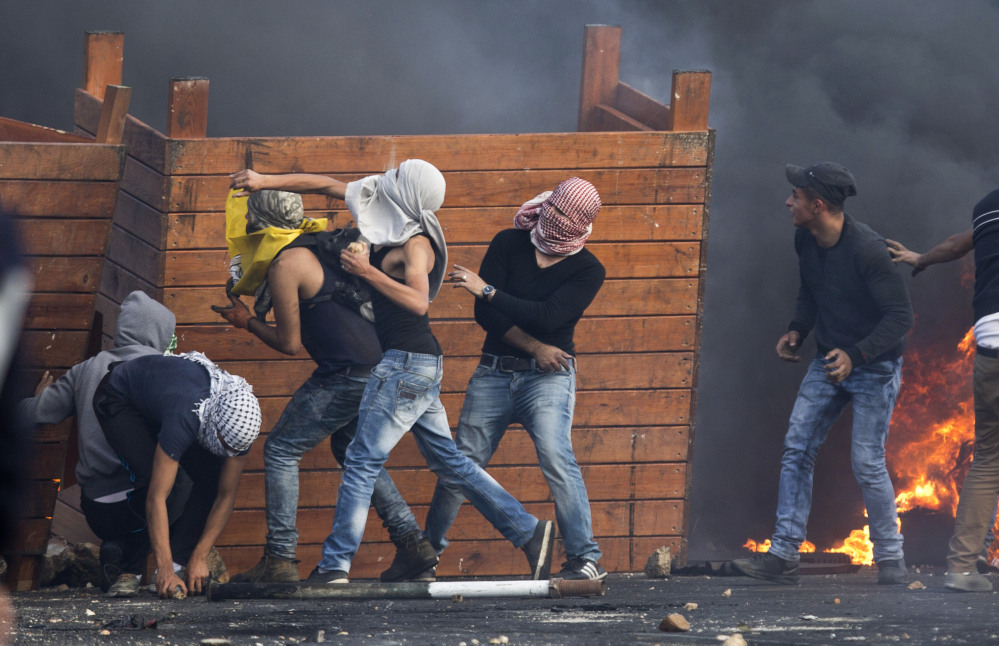JERUSALEM — Palestinians in Gaza joined in angry protests sweeping across Israel and the West Bank, rushing Israel’s perimeter fence and throwing stones at soldiers, who shot and killed six Gaza residents and wounded 60, many of whom were in serious condition, according to the Health Ministry.
The clash at the Gaza fence marks the highest death toll in the coastal enclave since last year’s war between Hamas and Israel.
After Friday prayers in Gaza, the leader of the Islamist militant movement Hamas, Ismail Haniyeh, declared that a third Palestinian uprising, or intifada, had begun “and we intend to join in.”
Israel’s military spokesman, Lt. Col. Peter Lerner, said hundreds of demonstrators in Gaza “stormed the border fence multiple times. After firing warning shots, the forces fired at main instigators to prevent their advance.”
Lerner said Hamas police stood by and watched.
Just hours after Prime Minister Benjamin Netanyahu convened a rare news conference to tell Israelis that “we don’t need to be afraid,” Israel and the West Bank experienced an eighth day of violent demonstrations, knife attacks and mob vengeance.
At his news conference late Thursday, Netanyahu tried to assure anxious Israelis that his government would quell the unrest, but he added that there was no magic wand to wave.
Israeli commentators called Netanyahu’s messages mixed, highlighting the challenges he faces stopping violence that is driven by multiple actors, including Islamist radicals, Jewish extremists and Palestinian “lone wolf” teenage attackers with no ties to militants or mullahs.
Israel’s attempts to stop the violence also include harsh military and police tactics that allow for more live fire against rioters and terrorism suspects, thereby creating more Palestinian martyrs, mourned in ever larger, angrier funerals.
The prime minister told Israelis that they were seeing “a wave of terror” but need not be afraid. Jewish parents in Jerusalem refused to send their children to school for the second day Friday.
Netanyahu again blamed Palestinian Authority President Mahmoud Abbas for incitement but suggested that the two could work together to ease tensions.
“Now is the time for a government of national unity,” the Israeli prime minister said, and he called on the opposition in parliament, led by the Labor Party’s Isaac Herzog, to form a coalition. But within minutes, Herzog rejected the offer, charging that Netanyahu had “lost control over the security of Israel’s citizens.”
Send questions/comments to the editors.



Success. Please wait for the page to reload. If the page does not reload within 5 seconds, please refresh the page.
Enter your email and password to access comments.
Hi, to comment on stories you must . This profile is in addition to your subscription and website login.
Already have a commenting profile? .
Invalid username/password.
Please check your email to confirm and complete your registration.
Only subscribers are eligible to post comments. Please subscribe or login first for digital access. Here’s why.
Use the form below to reset your password. When you've submitted your account email, we will send an email with a reset code.